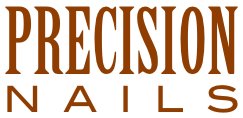Article Published in Stylist Magazine, August 2010
And thank goodness for that! Wanting something done well and doing it yourself are two different things. Our talent and training as beauty professionals should make what we do look easy, but that’s the nature of technical expertise. It’s our knowledge and skills, not the products we use, that make us valuable. Beauty products, even those from the most exclusive professional brands, are readily available to resourceful consumers. And that access gives many consumers confidence that they can achieve professional results at home. If only it were that easy . . .
As an avid do-it-yourselfer, I certainly understand the appeal. Beyond the sense of accomplishment, there are more practical concerns such as avoiding the expense of paying someone else and the possibility of having a negative experience. Ideally, the salon experience should be safe, enjoyable and worthwhile. But it’s not uncommon for consumers to experience unsanitary conditions, risky procedures, less-than-ideal ambiance, poor workmanship, false advertising and/or bad customer service. These are valid concerns so it’s no wonder that some consumers feel reluctant, fearful or apathetic about visiting a nail salon. Efforts to educate consumers about choosing a reputable salon can be beneficial, but it’s regrettable that media reports focused on the dangers of nail salons may do more to damage our industry than to help consumers make better decisions.
If consumers were able and willing to maintain their nails as well as a licensed manicurist can, then professional nail care may rightfully be considered a completely unnecessary extravagance. No doubt some consumers already feel this way, and will never experience the benefits of professional nail care. And we have to accept that. We should not accept the failings of our industry, such as unlicensed activity, especially when they come to characterize the industry as a whole. It’s our professional responsibility to not only meet the (admittedly low) standards established by the government, but to exceed the expectations of consumers. What we do for our clients must satisfy their needs for safety, quality, convenience and pampering. Being merely adequate is not enough to distinguish yourself from your competition, or outdo the average do-it-yourselfer.
While writing these words, I understand that this is not only true of manicuring, but of any profession. At this very moment, the competent employees of my favorite window-washing company are standing on ladders and exerting themselves to make my salon look its best. Though washing windows only takes minutes, does not require any special equipment, and would not be all that difficult to do myself, I consider this monthly service worth every penny because professional window washers can do their work better than I could. And my time would be better spent doing what I do best.
As a salon owner, I take my work very seriously, and have even written my own job description:
Handle financial responsibilities.
Pay the salon lease and all utilities.
Pay employee wages and employer’s portion of taxes.
Pay county, state and federal taxes.
Provide liability, property and worker’s compensation insurances.
Provide all supplies, products, equipment and furnishings.
Meet legal and professional obligations.
Maintain a valid establishment license.
Ensure the enforcement of all relevant federal, state and local laws.
Maintain client and employee records.
Research and evaluate new products and techniques.
Promote the salon.
Make all marketing decisions, including advertising and donations.
Produce marketing materials (brochures, business cards, gift cards, etc.).
Maintain a current website.
Represent the salon at beauty industry events, including state board meetings.
Establish relationships with manufacturers and other beauty professionals.
Present classes relating to business practices, services, etc.
Supervise salon operations.
Make all employment decisions, including hiring and terminating.
Train all employees.
Schedule employees.
Develop services and determine pricing.
Select and price retail products.
Manage clientele, including access to standing appointments.
It’s difficult to imagine any salon owner capable, or willing, to perform all the necessary functions in an effective and efficient way. But, it’s even more difficult to imagine paying professionals to do all that’s required. If so, I’d be engaging the services of a bookkeeper, accountant, lawyer, painter, designer, maintenance supervisor, housekeeper, publicist, copywriter, salon manager, receptionist, marketing manager, education director, purchasing/inventory manager, business coach, and consultant. Those would be in addition to the most important professionals, my salon employees, whose primary function is to provide nail services to our clients.
So much of what I’ve learned about running my business has come through my own experience, especially the mistakes. I know that every penny, every minute counts. While the temptation to do-it-all-myself can be very strong, I’ve learned my salon operates best when I delegate certain functions, like payroll, tax preparation, website maintenance and window washing. That still leaves me plenty to do myself. Knowing my limitations, helps me determine what I can do well, and what’s better delegated to a professional. I can summarize thus:
Grant me the money
to afford the things I cannot do;
the time to do the things I can;
and wisdom to know the difference.
By Jaime Schrabeck, Ph.D.
Welcome to the Precision Nails Blog
As a salon owner and licensed manicurist, my perspective on the nail industry could not be more practical. While some may be offended by the opinions expressed, please understand that I want to share information and stimulate discussion. Whether you want your nails done or do nails professionally, I hope you find this blog both useful and interesting.
Jaime Schrabeck, Ph.D.
Materials on this website may not be reproduced, redistributed, transmitted, copied, cached, or otherwise used, without prior written consent of Jaime Schrabeck. To request consent, contact Jaime at consulting@precisionnails.com.
Jaime Schrabeck, Ph.D.
Monday, January 17, 2011
Subscribe to:
Post Comments (Atom)





No comments:
Post a Comment